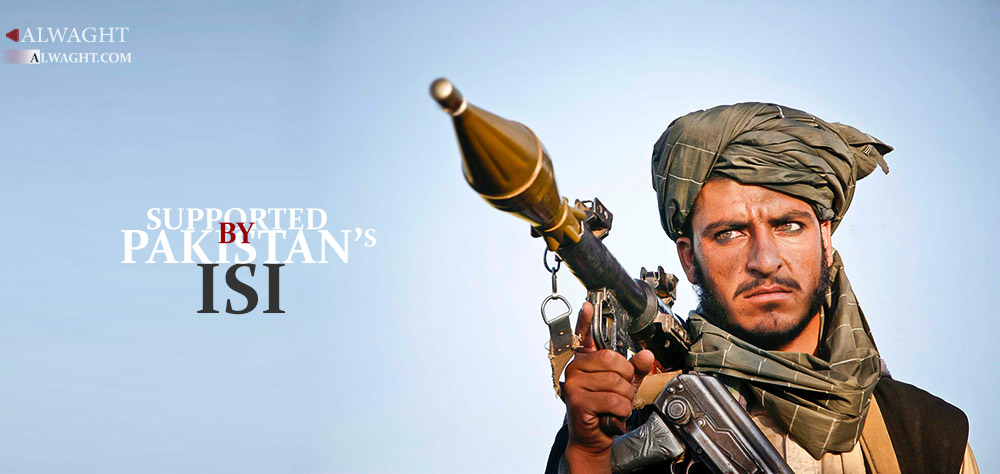Alwaght- The new Taliban leader Mullah Hebatullah Akhundzada was the chief judge of Afghanistan during the rule of the militant group over the country. The decrees he gave at that time showed that he was not of strong determination, and so he did whatever the Taliban leadership asked for.
With this record of Akhundzada in mind, the new leader of Taliban is not a strong military man or commander. These features give rise to a question: Why was Akhundzada chosen to lead the insurgent group following death of the former leader Mullah Akhtar Mansoor? The major reason is that simply because Taliban and its clandestine backers were worried that in these conditions there could spark a power struggle inside the militant group, and so the situation could spin out of control. Therefore, Taliban took advantage of Akhundzada’s being a cleric and appointed him its leader. But with choosing Mullah Yaqub, the elder son of the former Taliban leader Mullah Omar and Sirajuddin Haqqani as deputies to Akhundzada, it seems that from now on the power of Taliban would fall in the hands of Maulvi Jalaluddin Haqqani, the head of insurgent group Haqqani Network, and he would make decisions behind the scenes. The odds are that after a while a new leader, possibly Jalaluddin Haqqani, would be chosen for Taliban.
In the current time, Taliban moves in a way that makes it not so optimistic about the future. Actually, it cannot get involved seriously into peace talks with the Afghan government, and on the other side it lost the hopes for beating Kabul government through military conflict to establish its own Islamic emirate as it did before 2001. These challenges have pushed Taliban into a state of uncertainty. Now that Akhundzada is picked to lead Taliban, the situation could even see a deterioration, because other split groups and commanders present in the battlefield have not yet accepted him as the successor of Mullah Akhtar Mansoor.
Abdul Manan Niazi, the cleric loyal to the Mullah Abel Rasul-led split group of Taliban has said that the Quetta Council which decided to put Akhundzada as a new leader was not legitimate because it made no consultations with the affiliates and commanders of Taliban. According to Niazi, there must be a meeting attended by all sides of Taliban and so there should be a process to choose the new leader. However, it is very unlikely that a meeting would be organized to decide on a new leader, because Pakistan is behind all of Taliban developments. In fact, it was Pakistan’s Inter-Services Intelligence (ISI) that quickly took the initiative in a bid to prevent Taliban from falling apart.
It must be taken into account that all of Taliban’s leadership claimants have their own flaws. For example, Sirajuddin Haqqani is close to Islamabad’s ISI and is known for his radicalism in the war, thus, the Pakistanis found it not appropriate in these circumstances to raise him to rule of Taliban.
At the same time, Pakistan is heavily under strains of the US and Afghanistan to convince Taliban to go to the negotiating table. Having the US-Afghan pressures on Pakistan in mind, Islamabad could undergo even tougher strains should there was a figure like Jalaluddin Haqqani as a leader of Taliban.
Thereby, Pakistan has decided that Taliban should get a more moderate leader like Akhundzada. Taliban new leader holds two advantages: first, it is related to the Kandahari Movement of Taliban. He is actually from a large Kandahari tribe- an issue that helps him get other Taliban movements to stand by him. But Haqqani, on the other side, is related to the Easterners- a tribe that only enjoys a self-credibility and so it is not of credit and honor among other tribes. Second, the Kandahari Movement has a long-time record of holding the power in Afghanistan.
A significant discussion following appointment of new Taliban leader is the peace process between Taliban and Afghan national unity government. It must be taken into consideration that Taliban leadership does not hold a leverage to decide on the peace negotiations with Afghanistan. In fact, Pakistan has the last say on peace dialogue. If the Pakistanis have come up with the idea that they need to review positions concerning Afghanistan, and on the other side they see increased US pressures for peace talks, then Mullah Akhundzada is a suitable choice for Pakistan to get engaged in dialogue. But it all largely depends on Islamabad’s approach.
Moreover, Taliban group has two features: first, it is ideologically monopolistic, and second, it is ethnically Pashtun, and by the way the Pashtuns are dominant in Afghanistan. A mix of these two characteristics does not allow Taliban to easily involve in peace process with a government in which other groups- rather than the Pashtuns- are influential. It is so difficult for Taliban to accede to a constitution that respects the rights of minorities and the women, for example. In fact, after Bonn International Conference on Afghanistan held in 2001, Afghanistan’s constitution moved to a democratic and liberal system- something strongly rejected by Taliban. This comes while Taliban evaluates the peace negotiations from a religious perspective.
Finally, the resumption of peace talks is likely only if the conditions press Taliban to approve of holding a share of power in Afghanistan government. In this case, the peace initiative of US Army General David Petraeus, which is supported by Washington, could present a path to move within.



























